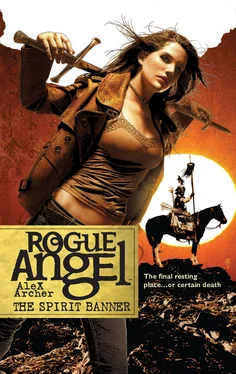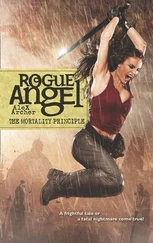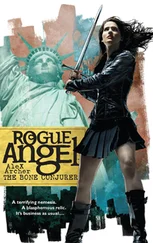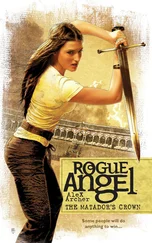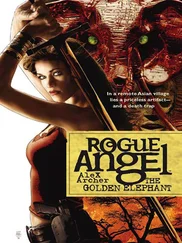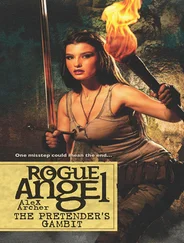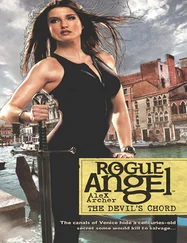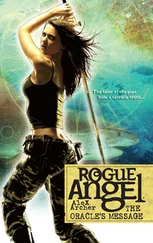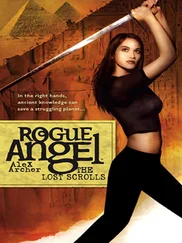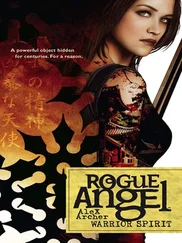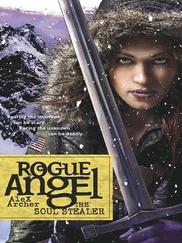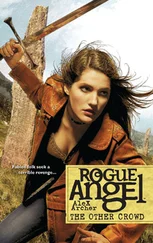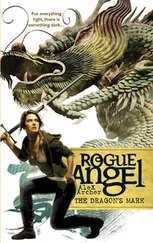Their horses thundered on through the snow while the enemy closed inexorably from behind.
After a time, it was obvious to everyone, even Curran, that they were not going to make it. Volke shouted again and the small entourage turned to fight.
Curran watched their pursuers come on with fear in his heart but with courage on his face.
As the enemy closed the distance, they split ranks, sending half of their forces sweeping to the left while the remainder went right, enveloping Curran’s small group in a wide circle two ranks deep, with each rank moving in opposite directions. From out of those ranks the arrows came again. Curran watched Volke topple from the saddle with more than a dozen black shafts jutting from his now-still form. Kaisar and Jelme, his senior lieutenants, met the same fate seconds later. In moments, the enemy had effectively stripped the small band of its most experienced leaders. Curran had no doubt that the tactic had been intentional. Cutting off the head to kill the body was a strategy as old as war itself.
If someone didn’t do something soon, they were all going to die, the priest realized. Apparently the men around him felt the same way, for there was a sudden shout from one of the more experienced warriors and the troops spurred their horses and charged the enemy. Trained to act with the others, Curran’s horse followed suit. The Jesuit was about to meet the enemy whether he wanted to or not.
“Lord, protect your humble servant,” the priest whispered under his breath as he drew his sword and went to meet his death with his head held high in the manner of the Savior he revered.
The two groups slammed together with thunderous force. Men shouted, horses screamed, and Curran found himself slashing to and fro with his weapon, striking out at anything within reach, fighting for his life just as savagely as the enemy sought to relieve him of it.
For just a moment, he thought they might win. Their sudden concentrated attack had surprised the enemy and they burst through the first rank without stopping, surging forward, but in the next moment a heavily mailed fist holding the pommel of a sword smashed into Curran’s face, toppling him from his saddle. He struck the ground hard, and as he lay there unmoving, the wind knocked out of him, he felt a stabbing pain in his left leg. Curran screamed in agony. Darkness loomed and then swept over him like the tide.
H AVING FULLY EXPECTED to die when he’d lost his grip on his horse, Curran was surprised to regain consciousness sometime later. With consciousness, however, came an awareness of the pain his body was experiencing and surprise quickly turned to regret. In that first instant, he was convinced that death would have been a better alternative to what he was currently experiencing. He screamed aloud against the pain and passed out again.
The second time he regained consciousness, the cold had wrapped him in its chilly embrace, dulling the pain to a minor roar, and he was actually able to open his eyes.
He immediately wished he hadn’t.
The dead were everywhere. They covered the ground in front of him and as far as he could see on either side. After stripping the bodies of anything of value, the Naimans had followed the traditional steppes custom and left the dead where they had fallen. Now their eyes stared unseeing and their blood stained the snow in thick patches of crimson-black. The bodies of his companions mingled haphazardly with the corpses of the horses on which they’d ridden, neither man nor beast being spared in the midst of the fray.
He shifted his position and a lance of roaring pain shot up from his left leg and threatened to plunge him into unconsciousness once more. He fought against it, knowing that if he succumbed, he’d most likely freeze to death.
When the dizziness receded and he could think clearly again, he looked down at his leg. He turned away almost immediately. The sight of the dark shaft of an arrow jutting up from his thigh and his own blood staining the snow was almost too much for him to bear.
He couldn’t ignore it, though. He was going to have to deal with it, and soon, if only to keep from bleeding to death. Steeling himself, and taking a deep breath to keep from vomiting, he looked down at his leg again.
The arrow had hit him high on the back of the thigh and had gone all the way through his leg at an angle, exiting about an inch above the knee. He could see that the edges of the head were barbed, which meant he wasn’t going to be able to pull the arrow back in the direction it had entered. Nor could he remove it the other way; the feathered shaft would prevent it.
He was going to have to break the shaft on one side or the other and then pull the rest of it free.
The very thought of it made him shudder.
Why bother? he wondered. Even if he could get the shaft out and stop the bleeding, he was only trading one method of dying for another. There was no way he could travel in his condition, and if nightfall caught him here on the plain he was sure to freeze to death. It seemed God had saved him from a quick, sure death only to fall victim to a long, lingering one.
But Curran was not the type to go down without a fight.
The wind was picking up and the snowfall that had dogged their march earlier that morning had started anew. Never mind the brutal cold that threatened to steal his every breath. If he didn’t do something immediately, he wasn’t going to have the strength left to try anything at all.
He tore several strips of cloth off the shirt of a nearby corpse, folding some a few times to create makeshift compresses and laying the others out where he could reach them without difficulty. Working quickly so that he wouldn’t have time to think about it, he rolled partially on his side, exposing the feathered end of the arrow. Taking it in his left hand, he gripped his thigh tightly with his right, holding it steady. Curran took a deep breath and then snapped his left hand sharply to one side, breaking the wooden arrow in two just above the fletching.
He screamed against the pain, but managed to remain conscious. The motion had started the wound bleeding again. With shaking hands, he stuffed several of the compresses against the open wound and then tied it off with one of the strips.
He was breathing heavily now, the pain making it difficult to concentrate, but he pushed through it, knowing he had no choice but to finish what he had started.
Gingerly placing his leg flat on the ground, he took hold of the tip of the arrow, wrapping his fingers around the barbed edges to give him more leverage. He gritted his teeth and pulled.
With more than a bit of resistance, the rest of the shaft slid free.
He tossed the broken shaft of the arrow aside, packed the wound with some snow and the rest of the compresses to stop the bleeding, then tied the whole thing off just as he had the entry point.
When he was finished, he slumped on the ground, sweating, exhausted and in considerable pain.
After some time—he didn’t know how long—the pain receded to a manageable level. He pushed himself back up into a sitting position and took a look at his handiwork.
Blood had dried around the edges of the makeshift bandages, but it looked like as if the wound had stopped bleeding.
Maybe he was going to make it, after all.
A soft snort to his immediate right made him nearly jump out of his skin. He slowly turned his head, not wanting to jostle his injured leg but at the same time afraid of what he might see. To his vast surprise, he found the horse he’d been riding standing a few feet away, rooting through a partially opened saddlebag for something to eat.
“Thank you, Lord,” Curran whispered.
If he could get on the horse, he had a fighting chance at survival.
Like the other Mongol steeds, his was a short-legged, shaggy beast that had seen its fair share of death and was unmoved by the carnage around it. Losing interest in the saddlebag at its feet, it raised its head, catching sight of Curran in the process. It trotted over and nuzzled him, looking to be fed.
Читать дальше
